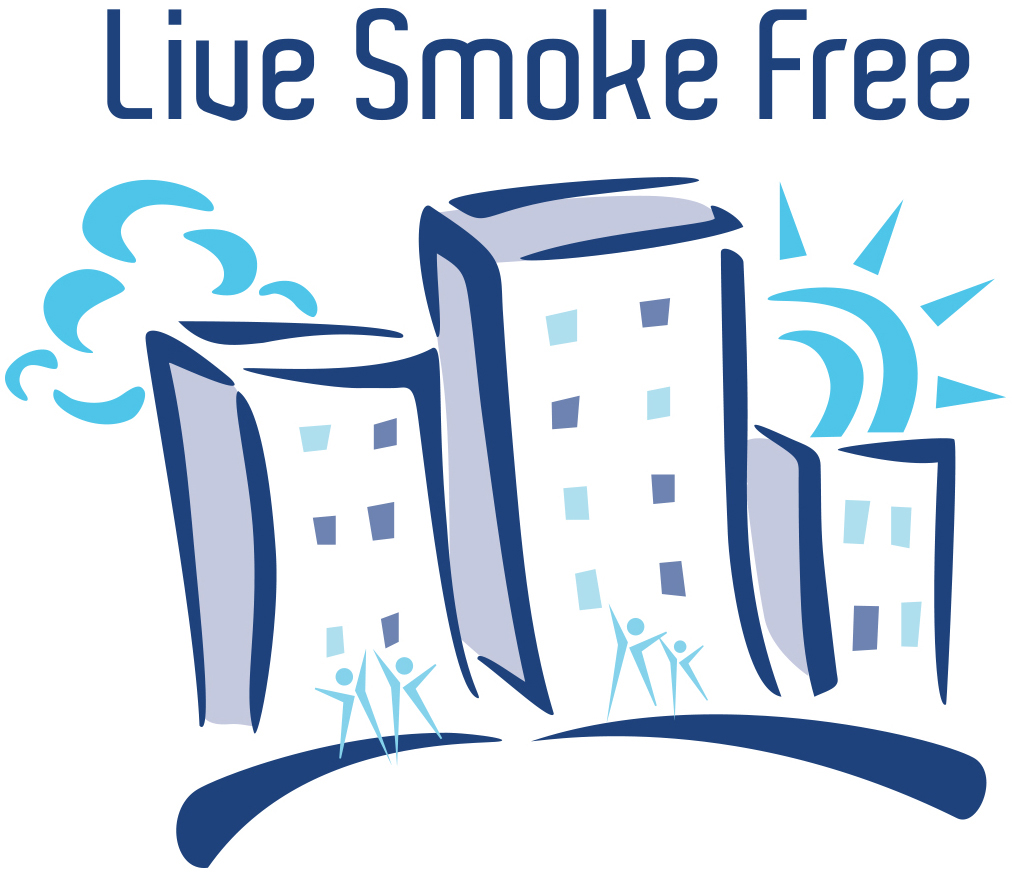PUBLIC POLICY

Smoke-Free Housing Public Policy in Minnesota
How Did We Get Here?
As more scientific data on the dangers of second and thirdhand smoke exposure in residential multi-unit housing becomes available, the need for strong smoke-free housing protections has become more clear. Multi-unit housing residents are demanding smoke-free housing and cities and counties are beginning to take action to protect their residents from exposure. This page contains background information, tools, and resources to help jurisdictions considering public policy actions. Please contact Live Smoke Free with questions.
Policy Options
A variety of policy options are available to jurisdictions wishing to protect residents from secondhand smoke in multi-unit housing. Contact Live Smoke Free to learn more about considerations and benefits of these different smoke-free housing policy approaches.
Incentives
Many, but not all, municipalities require that rental properties be licensed through the city. This approach would create incentives (such as promotions or discounted fees) for a property to have a smoke-free policy. Jurisdictions can also Incentivize multi-unit residences to go smoke free by establishing a city or county fund to support implementation and maintenance or by adopting a municipal resolution or declaration.
Disclosure
A disclosure policy requires property owners to disclose to potential renters or prospective buyers the policy on smoking for the building, complex, and unit, and whether the policy is smoking permitted or smoking restricted.
Requirement
This policy approach uses a city or county ordinance to require that multi-unit residential buildings have a smoke-free policy. This policy requires a thoughtful approach to minimize any unintended negative effects that could disproportionately impact Black, Indigenous, people of color, and low-income residents. See below to learn more about an equity and housing stability-based model smoke-free housing ordinance.

Support for Smoke-Free Housing
Minnesota surveying shows strong support for these policies. According to surveys conducted by Live Smoke Free and partners beginning in 2017, renters in Bloomington, Edina, Eden Prairie, Ramsey County, Brooklyn Park, and West St. Paul favor smoke-free policies, including disclosure policies and citywide requirements. Below is a snapshot of key takeaways from these surveys. To view the complete data, visit our Research page.
Exposure to Secondhand Tobacco Smoke
| Community | Number of Responses | % of Residents who Reported Exposure to Secondhand Tobacco Smoke |
|---|---|---|
| Ramsey County | 239 | 46% |
| Bloomington | 510 | 56% |
| Eden Prairie | 256 | 49% |
| Brooklyn Park | 287 | 54% |
| West St. Paul | 230 | 53% |
| Edina | 458 | 46% |
| Burnsville | 221 | 57% |
Exposure to Secondhand Cannabis Smoke
| Community | Number of Responses | % of Residents who Reported Exposure to Secondhand Cannabis Smoke |
|---|---|---|
| Ramsey County | NA | NA |
| Bloomington | NA | NA |
| Eden Prairie | NA | NA |
| Brooklyn Park | NA | NA |
| West St. Paul | 230 | 37% |
| Edina | NA | NA |
| Burnsville | 221 | 57% |
Support for Smoke-Free Building Policies
| Community | Number of Responses | % of Residents who would Support a Smoke-Free Policy for their Building |
|---|---|---|
| Ramsey County | 224 | 73% |
| Bloomington | 378 | 78% |
| Eden Prairie | 75 | 82% |
| Brooklyn Park | 144 | 64% |
| West St. Paul | 70 | 73% |
| Edina | 458 | 94% |
| Burnsville | 77 | 84% |
Support for Smoking Disclosure Ordinances
| Community | Number of Responses | % of Residents who would Support a Smoking Disclosure Ordinance |
|---|---|---|
| Ramsey County | 477 | 91% |
| Bloomington | NA | NA |
| Eden Prairie | NA | NA |
| Brooklyn Park | NA | NA |
| West St. Paul | 230 | 91% |
| Edina | NA | NA |
| Burnsville | 221 | 87% |
Support for Smoke-Free Housing Ordinances (Requiring Smoke-Free Housing Citywide)
| Community | Number of Responses | % of Residents who would Support a Smoke-Free Housing Ordinance |
|---|---|---|
| Ramsey County | 239 | 78% |
| Bloomington | 579 | 67% |
| Eden Prairie | 256 | 85% |
| Brooklyn Park | 287 | 68% |
| West St. Paul | 230 | 75% |
| Edina | 458 | 91% |
| Burnsville | 221 | 73% |
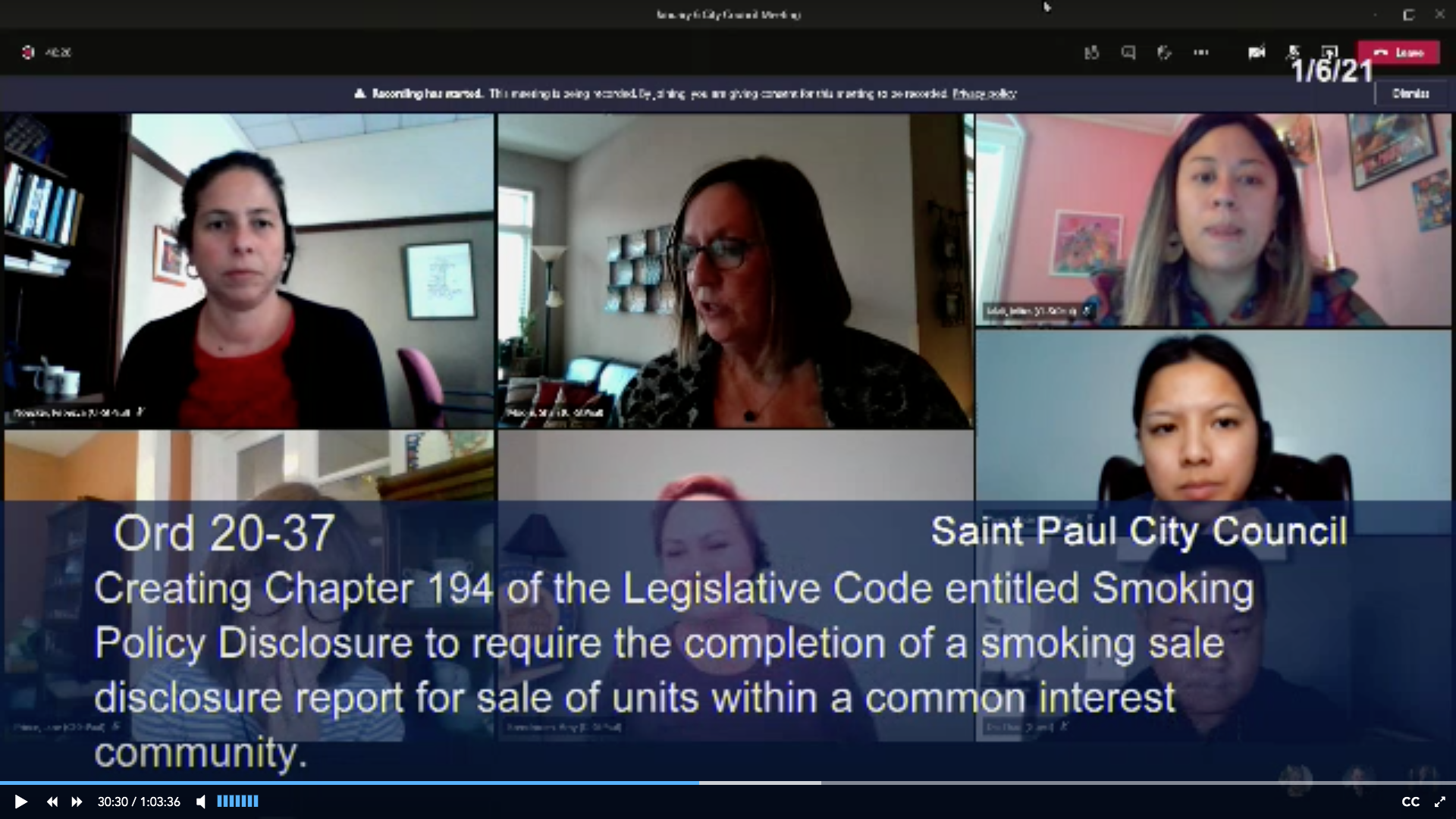
Municipal Smoke-Free Housing Ordinances and Resolutions in Minnesota
- Saint Paul, Disclosure of Smoking Policies in Common Interest Communities
- Duluth, Disclosure of Smoking Policies in Rental Housing
- Richfield, Resolution Endorsing Smoke-Free Housing in the City of Richfield
Pictured left: The St. Paul City Council voted in 2021 to require the disclosure of smoking policies in common interest communities.
“Residents of Saint Paul condos demanded this change in policy, after being impacted by secondhand smoke in their own homes,” said Noecker, who authored the ordinance. “This policy provides buyers the information they need to make an informed decision about the home they purchase.”
Developing an Equity-Focused Model Smoke-Free Housing Ordinance for Minnesota
In 2020, after years of community engagement and surveying, the City of Bloomington, Minnesota began exploring the adoption of an equity-centered smoke-free housing (SFH) ordinance focused on health and housing security for all residents.
Bloomington Public Health, the Association for Nonsmokers-Minnesota’s Live Smoke Free program, and the Public Health Law Center, with funding from Blue Cross Blue Shield of MN and the Minnesota Department of Health’s Statewide Health Improvement Partnership (SHIP), formed a partnership to explore what an equity-centered SFH ordinance approach could look like for the City of Bloomington, MN.
Partnership Goals:
- Conduct stakeholder engagement and community education about smoke-free housing.
- Create an “Equitable Enforcement Advisory Committee” to help guide and inform policy creation, including enforcement protocol.
- Create a draft model policy that centers equity and housing security for all residents.
Lessons Learned
- Significant investment in community education and engagement is imperative to promote compliance, including a delayed implementation period.
- Policy violations should not involve law enforcement or a criminal process, but instead provide civil remedies that differ for residents and property managers.
- The policy should be comprehensive (eg. cover all units) but allow for an optional outdoor designated smoking area if desired.
- Enforcement by a Community Response Team led by public health staff is preferred.
- An option to participate in community service and restorative justice should be offered in lieu of a civil fine.
- Fines for residents should be avoided and, if used, should be based on ability to pay.
- Eviction is viewed as a last resort for property managers and should only be allowed after graduated enforcement practices have been followed giving the resident an opportunity to remedy.
Project Poster
To learn more about this work, view our conference poster presented at the National Conference on Tobacco or Health in 2022: “Achieving Equity in Smoke-Free Housing: How a Social Justice Approach Shaped a Model Smoke-Free Housing Ordinance”
View PosterModel Smoke-Free Housing Ordinance for Minnesota
The final result of this work is an equity-focused model smoke-free housing ordinance for Minnesota. Contact Live Smoke Free to discuss how this model ordinance can be utilized in your community.
View Model OrdinanceBloomington, MN Smoke-Free Housing Videos
Live Smoke-Free in your Apartment (for renters)
The Benefits of Going Smoke Free for your Property (for property owners/managers)
Healthier, Cleaner, Safer Apartments: Smoke-Free Housing (for decision makers)
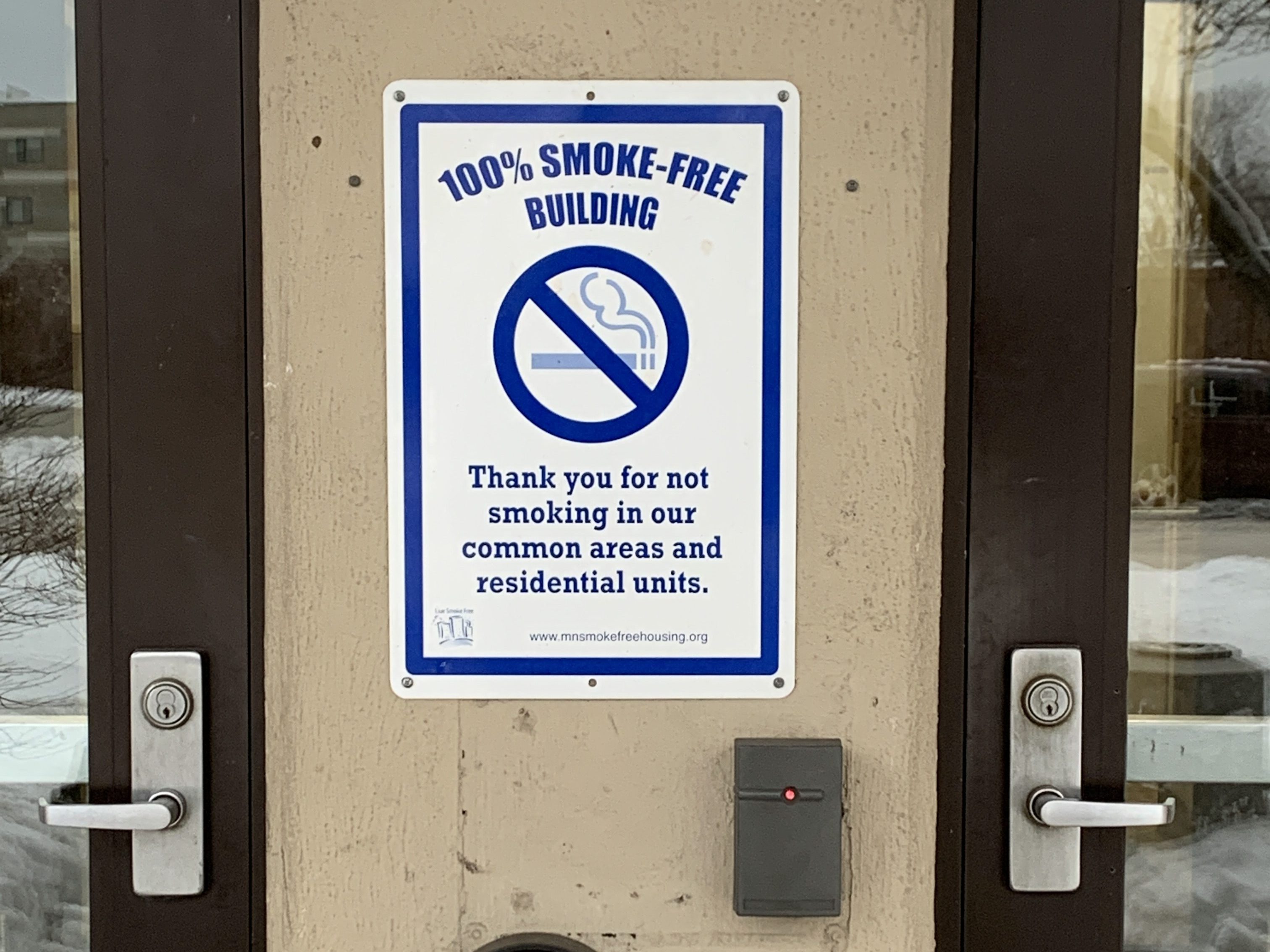
Webinars
Upcoming
Exploring Key Elements of an Equity-Focused Smokefree Multiunit Housing Model Ordinance
NEW TIME: May 25, 2023, 11am CST
Public Health Law Center staff, Rachel Callanan and Marisa Katz, will provide a 45-minute overview of key elements of the recently released Minnesota Smoke-free Multiunit Housing Model Ordinance. This comprehensive model builds on the Center’s experience working on previous iterations of a California model, years of experience in supporting communities and individuals with smoke-free housing policies, and an intensive three-year national stakeholder process described in our January 25, 2023 webinar.
Health equity requires that any policy that purports to protect health must address unintended negative effects that disproportionately harm Black, Indigenous, people of color, low-income, and other priority populations. This model ordinance was constructed with the aim of protecting the health of all residents, while not jeopardizing residents’ housing stability.
Presenters
- Rachel Callanan, JD, MNM, Lead Senior Staff Attorney
- Marisa Katz, JD, Staff Attorney
Register
Previous
Equity in Smoke-Free Housing: How a Social Justice Approach Shaped a Model Smoke-Free Housing Ordinance
Presented on January 25, 2023
This 60 minute panel discussion features members of an Equitable Enforcement Advisory Committee who collaborated in a multi-year project to draft a new model ordinance for smoke-free multiunit housing. The group’s primary goal was to prioritize residents’ perspectives and promote housing stability. While committee members agreed that an ordinance would protect residents from second- and thirdhand smoke exposure, they were also concerned about potential unintended consequences of ordinance enforcement, including resident displacement or eviction, housing insecurity, and unfair discriminatory enforcement practices and impacts. This multidisciplinary panel will explore key decision points and share important lessons learned as the group balanced residents’ different needs while shaping a model smoke-free multiunit housing ordinance.
Panelists
• Natasha Phelps, JD, Center for Black Health and Equity
• Michael Scott, Center for Black Health and Equity
• Bridgett Simmons, JD, National Housing Law Project
• Kara Skahen, MSW MPP, Association for Nonsmokers—Minnesota
• Kate Ebert, MPH CHES, City of Bloomington
Moderator
Marisa Katz, JD, Public Health Law Center
View RecordingResources and Fact Sheets
Sample: Incorporating Smoke-Free Housing in Local Comprehensive Planning – Dakota County, MN (2016)
Implementing and Enforcing a Smoke-Free Multi-Unit Housing Ordinance: A Fact Sheet for Local Jurisdictions- Changelab Solutions.
Disclosure of Smoking Policies in Multi-Unit Housing – Public Health Law Center (2021)
Regulating Smoking in Multi-Unit Housing – Public Health Law Center (2021)
Webinar: Health Equity Through Smoke-Free Multi-Unit Housing – Public Health Law Center (2020)
Marijuana in Multi-Unit Residential Settings – Public Health Law Center (2019)
Smoke-Free Multi-Unit Housing Enforcement Guide (CA) – Public Health Law Center (2022)
Principles for Equitable Smoke-Free Multifamily Housing – California Healthy Housing Coalition (2024)
Minnesota Smoke-Free Multi-Unit Housing Model Ordinance – Public Health Law Center (2023)
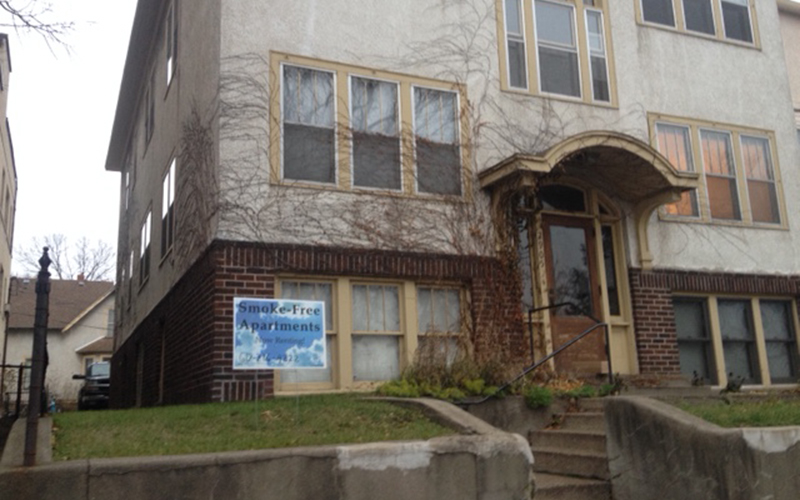
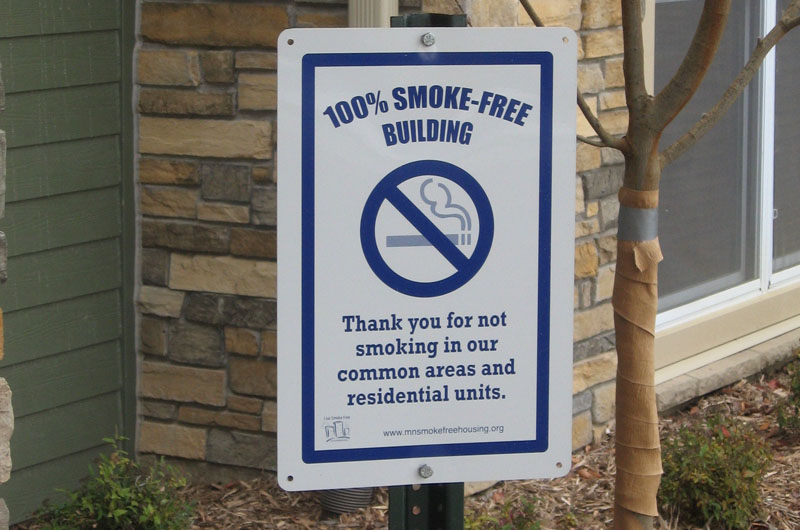
List of Currently Enacted Laws
U.S. Laws and Policies Restricting or Prohibiting Smoking Multi-Unit Housing – Americans for Nonsmokers Rights.
Download PDFResearch
Smoke-Free Policies and Resident Turnover: An Evaluation in Massachusetts Public Housing From 2009‒2018
Evaluating the Impact of a Citywide Smoke-Free Multiunit Housing Ordinance: Insights from Community Stakeholders- American Journal of Public Health.
Visit WebsiteSmoke-Free Multi-Unit Housing Ordinances: Lessons From California – Brynna Bargfield, MPP/MPH Candidate 2021, University of Minnesota
View Report
